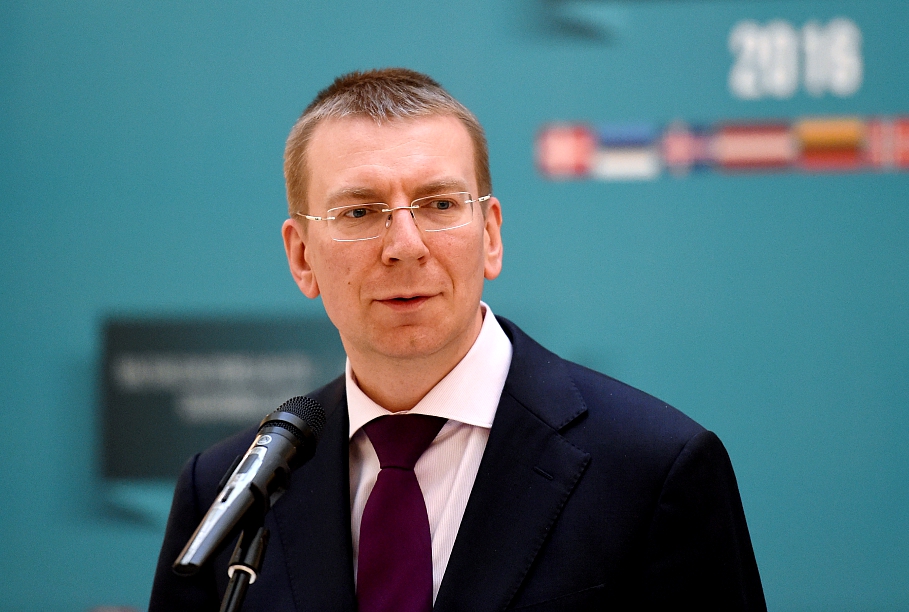''If we compare to the mood which NATO and the EU had two years ago, when only the Baltics and Poland were speaking about the propaganda problem and the information war being directed towards us, and we were then rebuked about violating press freedoms and such, then now the mood has radically changed,'' the minister said.
''Now, the whole of NATO and the EU is speaking about the fact that we are facing two huge challenges - one is propaganda and the information war being directed towards Europe, and the other is cyber-attacks. Very often, these two methods are used together, like, for example, during the U.S. presidential elections. Countries which have had recent elections or other important political processes, have finally identified these matters as serious problems,'' he said.
''This awakening has been especially painful for some,'' said Rinkevics.
''Now NATO has included strategic communications on its agenda. Special centers are being formed, like, for example, in Finland, which is creating its own hybrid-threat analysis and prevention center. NATO has truly done much in protecting us from cyber-threats, but we are still looking for methods to counter propaganda,'' the Latvian foreign minister said.
''Taking into account the distribution of false news stories, we understand that we must more more actively through social networks and look for solutions. We have some instruments to our disposal, but we still have a ways to go,'' he added.
#NATO ministerial consensus on #Russia: dialogue from the position of strength, but no business as pre-2014. pic.twitter.com/8xWXaH1Jde
— Andris Pelšs (@andrispelss) December 7, 2016
''The most important is that everyone else has finally understood that this is a problem which must be dealt with, and the discussion within NATO now is taking place in completely different tones than before,'' Rinkevics added.
''I am completely certain that we must behave towards some so-called Russian media outlets as tools used in its information war, and must block or forbid these media outlets to operated. I do not see anything here violating freedom of speech or such,'' Rinkevics said.
Rinkevics continued in a similar vein December 8, telling a meeting of foreign ministers of the Organization for Security and Cooperation in Europe (OSCE) that it was imperative Russia respected international law.
@edgarsrinkevics at #OSCE on Russia's aggression in Ukraine: We must return to the rules based security order. pic.twitter.com/6o9EIgaka5
— Andris Pelšs (@andrispelss) December 8, 2016
A press release from the Latvian Foreign Ministry said Rinkevics told his OSCE collegaues Ukraine should remain high on their agendas, but it unfortunately contained no direct quotations from his speech.






























